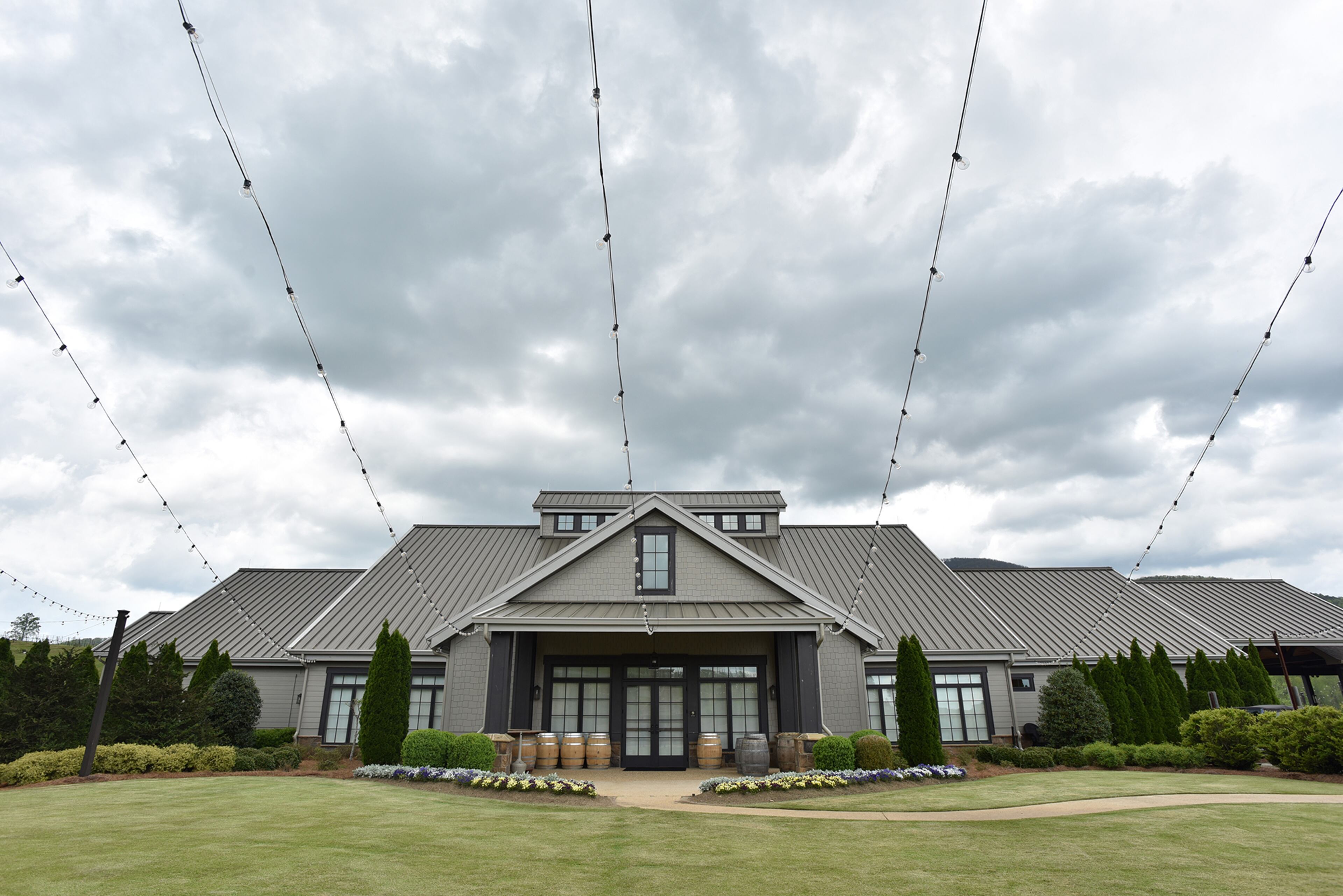Sun gets second job at Georgia vineyard: powering winery













The reputation of Georgia vineyards is still emerging. And the state's dominant utility only recently embarked on a meaningful shift to solar energy. But the owners of Yonah Mountain Vineyards in Cleveland decided blending grape growing and solar energy was a wave worth riding.
In March, the 200-acre family-owned winery completed a solar installation that is expected to provide about 60% of the total energy used annually for operations ranging from lighting or bottling to cooling its buildings.
» RELATED: Never say never: Atlanta draws fresh jolt of energy from sunshine
Though there are no reliable statistics on how many of Georgia’s estimated 60 to 70 wineries are using solar power, Yonah is believed to have one of the largest solar programs in the region with the goal of reducing its carbon footprint and perhaps, ultimately operating entirely off the grid.
“It is important to us that our customers feel good about the wine they drink, know its origins and know that it is produced responsibly and with care,”said Bob Miller, who founded Yonah Mountain Vineyards with his wife Jane in 2006. “I’m glad we did it.”

Wineries have been leaders among businesses in adopting solar power with California as ground zero, and in recent years, the trend has spread to other wine-producing states. Wine production has strong economic and cultural roots in the U.S., and viticulturists — or grape growers — recognized that unchecked emissions of greenhouse gases and subsequent extreme heat during growing season could reduce wine grape production in many areas of the U.S. One 2006 research study in the Proceedings of the National Academy of Sciences estimated that under one greenhouse gas scenario, premium wine grape production area in the U.S. could decline by up to 81% by the late 21st century.
In 2001, California wineries and grape growers responded to increasing environmental concerns by joining forces to develop a code for sustainable wine growing that addresses issues such as water conservation, energy efficiency, healthy soil, and pesticide usage. The moment helped fuel a boom in the number of California wineries going solar.
» RELATED: Homeowners play a role in Atlanta’s Clean Energy Plan
In Georgia, where the wine industry is expected to grow 15% to 20% in the next five to 10 years, the efforts have been more sporadic. In 2009, the now-shuttered Persimmon Creek Vineyards in Clayton was touted as the first local vineyard to invest in solar panels that supplied 50% of the facility’s energy needs.
Many of the factors that are required for successful operation of a winery — warm temperatures, plenty of sunlight and lots of open land — are also ideal for solar installations, said Matt Chester, a Washington, D.C.-based energy analyst. Beyond those physical and geographical alignments, there is also an image alignment, Chester said.
Not only does a solar-powered winery save money and energy, it is good marketing. “When you go to a winery, you feel like you are in the outdoors and farming, and embracing any type of renewable energy shows that,” he said. “In the past decade, it has snowballed with monkey see monkey do, but in a good way,” he said.

When Bob Miller purchased land in North Georgia in 2005, he was hoping to satisfy his wife’s desire to own a farm. The son of an Illinois farmer, Miller had retired from the financial industry to Fort Lauderdale in 1998. After they purchased an unlisted property at the foot of Mount Yonah — which means “bear” in Cherokee — a mountain ridge that lies in the Chattahoochee-Oconee National Forest, a friend suggested he plant grapes. Bob Miller went all in. He thought, “I am retired and I don’t have to do this. If we couldn’t make good wine, I was going to close it down,” he said. He wanted one good red and one good white that could stand up to the best wines from Sonoma and Napa.
With consultants from Napa, Bob Miller began building his brand using the best European (vitis vinifera) grapes he could grow or source, then aging the wine in French oak barrels. In 2009, Yonah brought its flagship red wine, Genesis, to the market. The blend, now on its ninth iteration, caused a stir in 2011 when wine experts chose it over two Napa wines in a blind tasting. Ten years later, Yonah Mountain Vineyards now plants and harvests 15 acres with nine varieties of grapes. They sell about 3,000 cases each year primarily direct to consumers. Several Yonah wines have earned awards in the San Francisco Chronicle’s annual wine competition.

Last year, the vineyard would have turned a profit for the first time if Eric Miller hadn’t convinced his father to invest in solar panels.
Eric joined the family operation as general manager in 2011. The former percussion drum instructor was a new dad and burned out on his music career. He quickly began making upgrades at the vineyard, taking the staff from three employees to 35, adding the latest technology for sales and inventory operations, expanding the reserve wine room with some of the most exclusive wines from around the world and in 2014, opening a tasting room complete with Tesla charging stations outside for electric cars.
Solar power seemed like a natural evolution. When Eric realized it was economically viable, he convinced his father to invest in stages. They started with the farmhouse where Bob and Jane Miller reside, installing 24 solar panels and a Tesla power wall that stores excess solar power. The system cost $48,000 and reduced the farmhouse energy bills by about 60%, said Bob Miller.

Next came the winery itself, which has an electric bill ranging from $5,000 to $7,000 per month to power 20,000 square feet. The 360-panel installation, which cost $250,000, will pay for itself in eight years, and its magnitude distinguishes the vineyard from any other winery operating in Georgia.
Some employees thought the panels, which are just visible from the tasting room, would be an eyesore interrupting the stunning views of the vineyards wrapping the hills, but it has proved to be the opposite.
“Eric said people would appreciate that we were into the next century and were doing things ahead of everyone else,” said Bob Miller. “(The panels) are not beautiful, but they do represent that we are thinking about the environment.”
YONAH MOUNTAIN VINEYARDS
Location: Cleveland, Georgia (about an hour and a half northeast of downtown Atlanta)
Founded: 2006
Size of winery: 200 acres. Yonah plants and harvests 15 acres with nine varieties of grapes.
Going solar: Yonah has installed 360 state-of-the-art panels, four rows that are 12 feet high and 10 feet wide. The system will provide 60% or more of all power used annually at the winery.
Of note: Yonah's flagship red wine, Genesis, now on its ninth iteration, caused a stir in 2011 when wine experts chose it over two Napa wines in a blind tasting. Also, several Yonah wines have earned awards in the San Francisco Chronicle's annual wine competition.


